Disclaimer: This post may contain affiliate links, meaning we get a small commission if you make a purchase through our links, at no cost to you. For more information, please visit our Disclaimer Page.
As an essential part of your everyday hygienic activities, the water heater is often an underestimated component of your bathroom.
We overlook how important this component is since, without it, we would not be able to conduct all the necessary activities that require hot water or even lukewarm water.
Although it is very important, the water heater is also one of the most inaccessible toilet components when it comes to maintenance and fixing the possible damage done to it.
Problems with the water heater often require professional attention, so a problem such as a leakage from the overflow pipe is not that unexpected.
In case this issue occurs, it is very important to know what you are exactly dealing with, to propose effective solution measures.
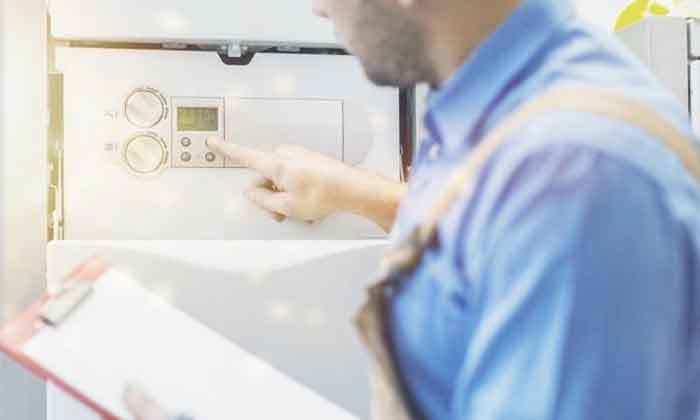
Hot Water Heater Leaking from Overflow Pipe
If a leak occurs in your water heater, the first task for the homeowner is to remain calm and determine the source of the leakage, if possible.
This can be either very easy or very difficult based on the point of the leakage.
This is because most of the water heaters have hardly accessible inner components, so you won't be able to have a visual on the interior of the heater.
Luckily, a small relief can be a very short list of possible leaking parts, since the heater itself does not have many points where the leaks are possible, and those that are known of have ways of dealing with such an issue.
We will suggest possible leak points and causes next, so that you can have a clear list of leak points in the heater, for easier determining of the cause and fixing the problem.
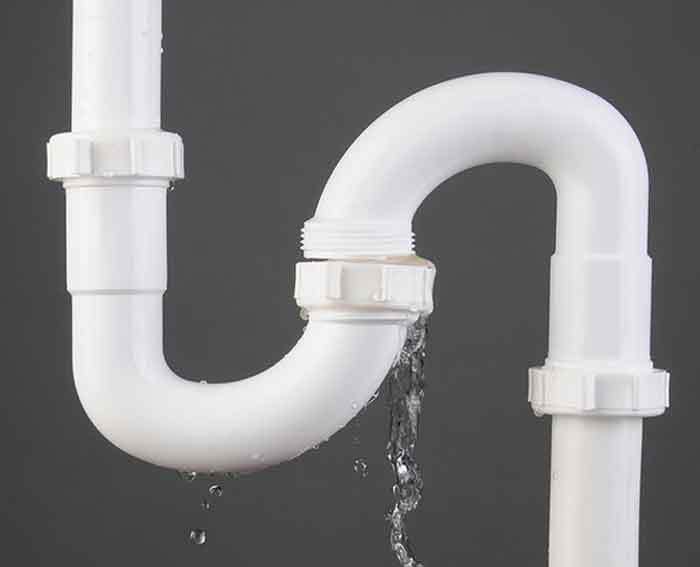
Probable Leakage Points in the Hot Water Heater
The water heaters have some elements which, like all the plumbing components in your household, could become loose or damaged by water flowing or simply by the years of usage.
That is why it is recommended to check for the exact date when the heater was purchased and installed since in some scenarios it could be very expensive and difficult to fix the leakage on old water heaters.
We will now list the possible causes for both new-age water heaters and the older versions, so have in mind that in case your heater is more than 10-12 years old, you will probably have to hire professionals to deal with the issue.
And now, let's see the most probable leak points in your water heater:
Loose inlet and outlet pipe fittings
Be sure to check the pipes connected to the heater for letting the cold water in, and the hot water out since at these connections the bond might become loose over time to cause leakage.
This may sound like an easy solution, but even a slightly loose pipe fitting can cause the heater to leak.
If you have determined that this was the cause of your leakage, simply reattach the fitting using a pipe wrench to prevent the leakage to expand.
If your water heater is older, there is a high possibility that this is the cause of your problem.
Worn-out rubber gaskets
Some kinds of water heaters have rubber gasket attachment with heater components.
These gaskets can over time get worn out and the connection between two elements could break.
In such a case, water would drop out of the connection and create a leakage that you can prevent on your own, without any professional help.
Change the rubber gaskets or use different materials and make sure that you have attached it right.
This will prevent leakage and also make you feel secure since you would not have to change these components in a while.
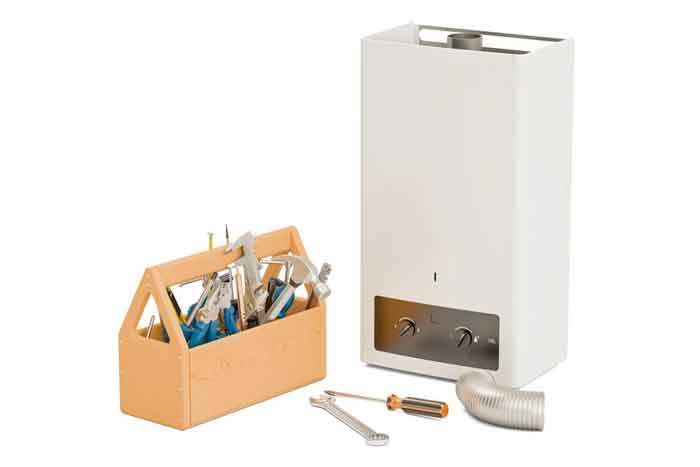
Problems that require tightening or replacement of a Drain valve
The drain valve is located near the bottom of the heater tank and has a significant role when the time comes for maintenance of the water heater.
This valve is used for emptying the heater tank for maintenance measures and is close to eye position.
Check for the possibility of drain valve loosening, and if it is loose tighten it up using a wrench or a screwdriver.
In other cases, the valve might malfunction and require a replacement. This can be the case if you or your plumber used the drain valve often to solve certain issues, so if that is the case with your water heater as well, be sure to check the drain valve.
Water tank difficulties
This is where it is very important to know how old your water heater is.
Over time, mineral deposits and rust starts to form inside your hot water tank.
This is due to frequent usage and exchange of water in the tank. In case this is the cause of your problem, not only will you have a hard time reasoning it out, but you will also have to replace the heater with a new one as the only option.
Deposits and rust formed inside the tank are eating out the interior and walls of your hot water tank, up to the point where the leakage occurs.
Inspect all the other possible causes before you even think of replacing the whole water heater.
If unfortunately, this is the reason for your leakage, your only option is to change to a new heater.
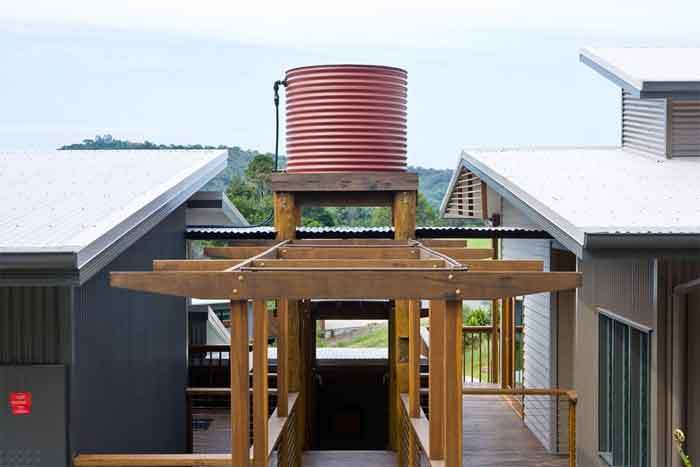
Pressure Relief Valve Difficulties
Finally, after listing the possible reasons for water heater leaking from the overflow pipe, this one requires special attention as the temperature and pressure relief valve is one of the most important components in your water heater.
It has the sole purpose of lowering the pressure of the accumulated hot water by pushing out a little part of the heated water.
This is of crucial importance since the heated water from the pressure relief valve can expand in the tank, therefore creating immense heat and temperature which may also result in an explosion of the water tank.
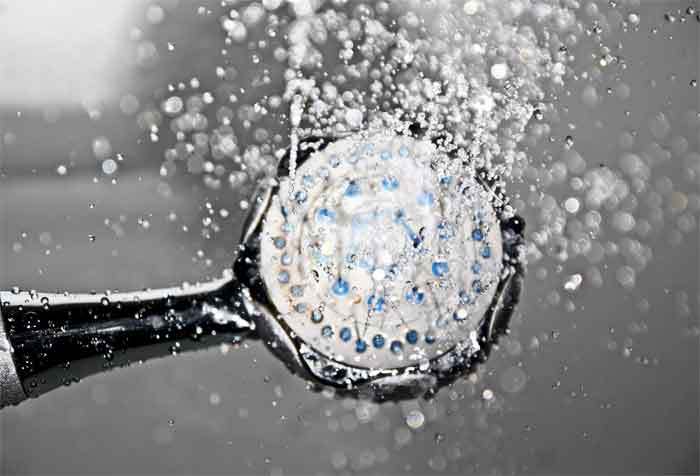
For all these reasons, dealing with the temperature and pressure relief valve should be left to professionals that are specialized in that area.
There is also the possibility to replace this valve on your own, but hiring a plumber, in that case, is more recommended.
This valve is connected to the top of the water heater, and a pipe sideways of the tank.
Even if this issue requires professional attention, there is a way you can check if this is causing your leak on your own.
Disconnect the valve from the pipe it is connected to and open the valve while having something to collect the water beneath it.
The heated water will this way flow under high pressure from the valve, so beware not to get burned by it.
If the pressure of the water is low, you can be sure that your temperature and pressure relief valve is not working correctly.
Steps to Take After Confirming the Leak
After you have checked all the potential leak points and located the leak, your next step is to shut down the water heater.
Always have in mind that you are dealing with water and electricity at the same time, so be extremely careful.
To turn off the water heater, first, determine the type of heater you have.
- When it comes to electric water heaters, you can just turn off the breaker switch responsible for powering the water heater.
- If your heater is a gas water heater, turn off the gas supply to the heater. Firstly you will need to find the gas supply valve which is usually located behind the tank of a water heater.
Next, it is important to shut down the water supply to the heater tank.
To do this, locate the cold water valve which is often near the point where the inlet for the cold water and the heater tank are located.
If you can't locate the shut-off valve right away, and the leak is getting worse, shut down the main water source to your house as a final measure.
As the final stage of solving the leak, there comes the time to replace or fix the existing water heater.
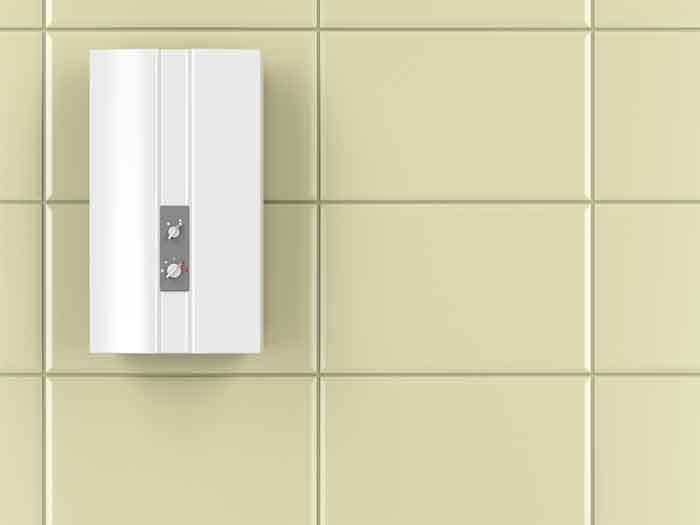
Sometimes, leakages can be mistaken for the pressure relief valve's duties, since this valve, as previously stated, removes a part of the heated water down the overflow pipe.
To check if that is the cause of the water flowing outside the heater, and not the leak, check the temperature of the water to make sure if the valve is doing its business.
In case you have successfully determined the source of the leak, and it has to do with previously mentioned loose pipes, fittings or gaskets, you can repair the heater yourself by finding the adequate replacements.
In case your leakage is confirmed and of more serious cause, the best thing you could do is hire a plumber.
Conclusion: Hot Water Heater Leaking
As all plumbing difficulties, problems with heater leakage can be very annoying and troublesome.
The issue of that scale should be referred to immediately and with extreme caution, to prevent future potential leaks, or even worse, an explosion of the heater tank.
This article is intended to inform on most of the usual causes of the water heater leaks, and to advise on how you should deal with such an issue.
Following the previously stated measures may not result in fixing your heater entirely, but at least you will know what exactly is the problem and which steps you should take next in fixing it.
If you require professional help, click on the banner below and enter your zip code.

